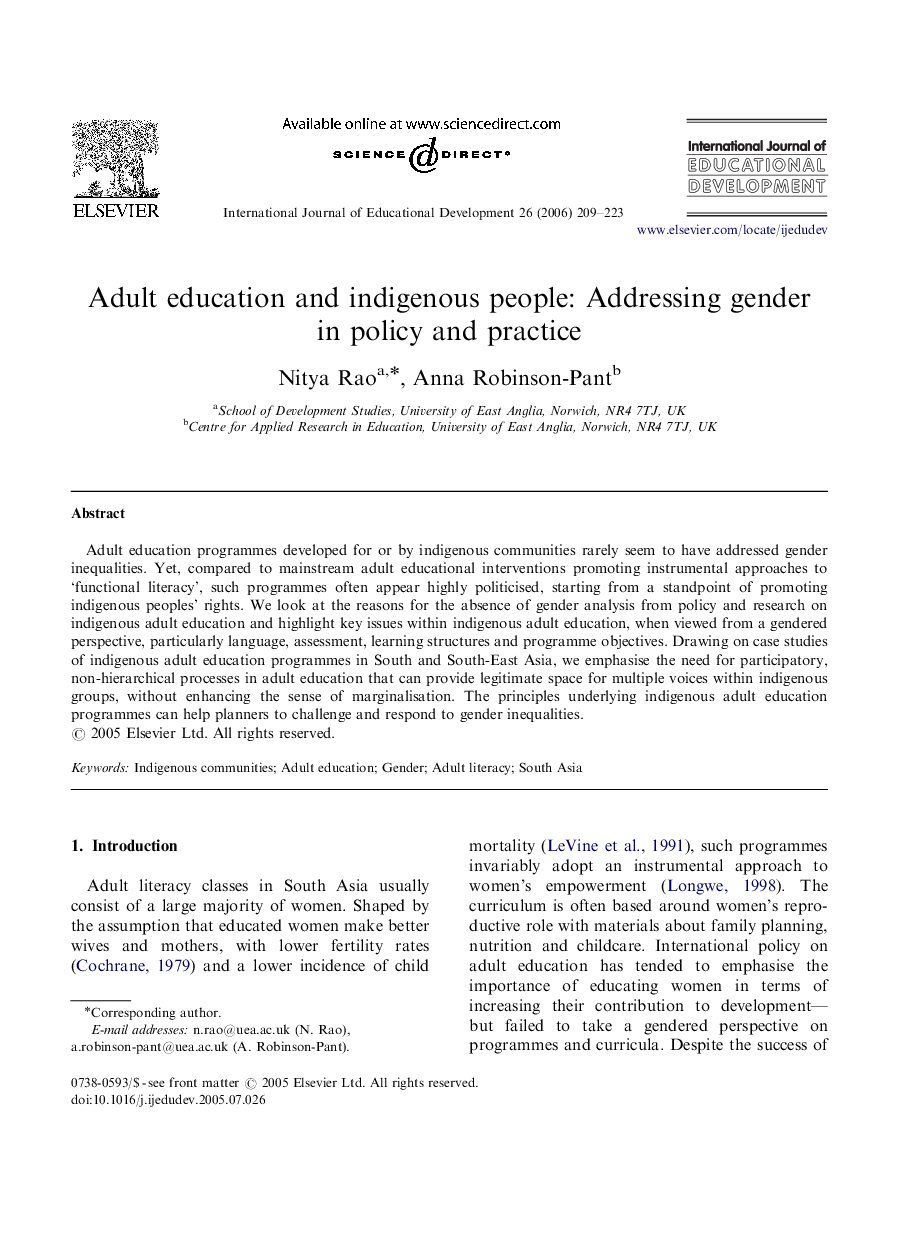| Article ID | Journal | Published Year | Pages | File Type |
|---|---|---|---|---|
| 356678 | International Journal of Educational Development | 2006 | 15 Pages |
Adult education programmes developed for or by indigenous communities rarely seem to have addressed gender inequalities. Yet, compared to mainstream adult educational interventions promoting instrumental approaches to ‘functional literacy’, such programmes often appear highly politicised, starting from a standpoint of promoting indigenous peoples’ rights. We look at the reasons for the absence of gender analysis from policy and research on indigenous adult education and highlight key issues within indigenous adult education, when viewed from a gendered perspective, particularly language, assessment, learning structures and programme objectives. Drawing on case studies of indigenous adult education programmes in South and South-East Asia, we emphasise the need for participatory, non-hierarchical processes in adult education that can provide legitimate space for multiple voices within indigenous groups, without enhancing the sense of marginalisation. The principles underlying indigenous adult education programmes can help planners to challenge and respond to gender inequalities.
